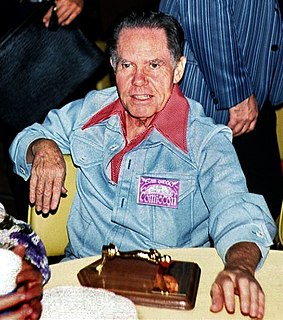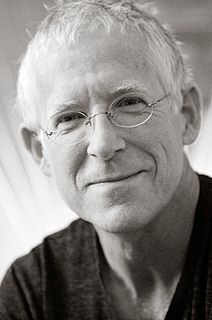A Quote by Marianne Williamson
Some professional writers write everyday no matter what and perhaps that's the way it should be done, but it's not the way I do it. If I'm not pregnant with words and I'm not in labor with them, I don't even try to bring them forth because they won't be any good anyway. Once I'm ready to deliver, it's like being pregnant. I've got to find a typewriter or a piece of paper. The only words that have ever had any possible value to others seem to have been those words that just had to come out.
Quote Topics
Any
Anyway
Because
Been
Being
Being Pregnant
Bring
Come
Deliver
Done
Even
Ever
Everyday
Find
Forth
Good
Got
Had
Just
Labor
Like
Matter
No Matter What
Once
Only
Others
Out
Paper
Perhaps
Piece
Possible
Pregnant
Professional
Professional Writer
Ready
Seem
Should
Some
Them
Those
Try
Typewriter
Value
Way
Words
Write
Writers
Related Quotes
I want you to understand the words. I want you taste the words. I want you to love the words. Because the words are important. But they're only words. You leave them on the paper and you take the thoughts and put them into your mind and then you as an actor recreate them, as if the thoughts had suddenly occurred to you.
He had a word, too. Love, he called it. But I had been used to words for a long time. I knew that that word was like the others: just a shape to fill a lack; that when the right time came, you wouldn't need a word for that any more than for pride or fear....One day I was talking to Cora. She prayed for me because she believed I was blind to sin, wanting me to kneel and pray too, because people to whom sin is just a matter of words, to them salvation is just words too.
She'd always known he loved her, it had been the one certainty above all others that had never changed, but she had never said the words aloud and she had never meant them quite this way before. She had said it to him, and she hardly knew what she had meant. They were terrifying words, words to encompass a world.
There are some words I find impossibly difficult ... 'Love,' 'feeling' and especially 'happiness' are at the head of the list. This is not because I haven't experienced any of them but because whenever I think about using the words I don't really know what anyone means by them. I'd find it easier to sit down and write a book about each (coming, obviously, to no conclusion) than to use them casually in speech or writing.
If you have words and want to write music for them, the words hit you with a feeling which you can't really describe in words, and so what you do is to put music to them and in this way you make contact with the words, through the musical thing. It happens when two feelings come together and they do something together and they compliment each other.
Rebecca was an academic star. Her new book was on the phenomenon of word casings, a term she'd invented for words that no longer had meaning outside quotation marks. English was full of these empty words--"friend" and "real" and "story" and "change"--words that had been shucked of their meanings and reduced to husks. Some, like "identity" and "search" and "cloud," had clearly been drained of life by their Web usage. With others, the reasons were more complex; how had "American" become an ironic term? How had "democracy" come to be used in an arch, mocking way?
I believe that fallen creatures perish, perish for ever, for only good can live, and good has not been theirs; but how durst men forge our Saviour's words "eternal death " into so horrible a meaning? And even if he did use other words, and seem to countenance such a meaning for them (and what witness have we that He did, except that of men whose ignorance or prejudice might well have interpreted these words wrongly as they did so many others?
So Mo began filling the silence with words. He lured them out of the pages as if they had only been waiting for his voice, words long and short, words sharp and soft, cooing, purring words. They danced through the room, painting stained glass pictures, tickling the skin. Even when Meggie nodded off she could still hear them, although Mo had closed the book long ago. Words that explained the world to her, its dark side and its light side, words that built a wall to keep out bad dreams. And not a single bad dream came over that wall for the rest of the night.
Did I do and say these things? Yes, I did. Are there any mitigating circumstances? Not really, unless any circumstances {in other words, context) can be regarded as mitigating. And before you judge, although you have probably already done so, go away and write down the four worst things you have done to a partner, even if - especially if - your partner doesn't know about them. Don't dress things up, or try to explain them; just write them down, in a list, in the plainest language possible. Finished? Ok, so who's the arsehole now?
The single most important technique for making progress is to write ten words. Doesn't matter if you're badly stuck, or your day is completely jam-packed, or you're away from your computer - carry a small paper notebook and write a sentence of description while you're waiting on line at a coffee shop. I think of this as baiting a hook. Even if you have a few days in a row where nothing comes except those ten words, I find that as long as you have to think about the novel enough to write ten words, the chances are that more will come.



































